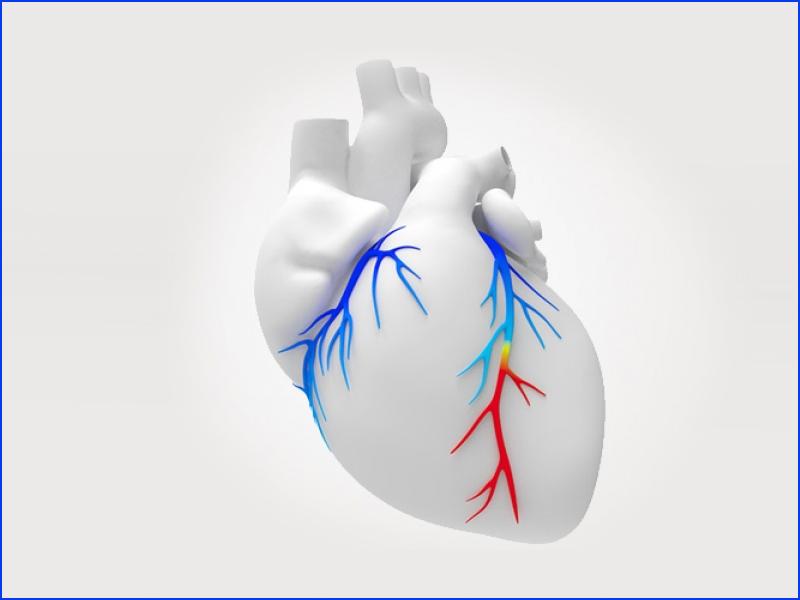Tulane Medical Center adopts noninvasive tool for coronary heart disease
Tulane Medical Center is the first healthcare facility in the New Orleans region to offer HeartFlow® FFR-CT Analysis technology, a noninvasive tool to offer patients and their physicians insight into both the extent of a patient’s heart disease and the impact these blockages have on blood flow to the heart muscle by imaging coronary artery blockages.
Dr. Robert Hendel, chief of cardiology at Tulane University School of Medicine and director of the Tulane Heart & Vascular Institute, said the new imaging method provides physicians with new information about the anatomy – blockages, physiology and blood flow – of coronary heart disease.
“This noninvasive test will help make decisions as to the best approach to an individual patient’s heart problems, and it allows us to do so without having patients undergo additional tests or procedures,” said Dr. Hendel. “That means not only added patient convenience and satisfaction, but most importantly, it helps physicians plan the best strategy for every patient. This test improves a doctor’s ability to inform patients regarding whether or not they may benefit from either coronary stenting or bypass surgery.”
“We are very proud to be the first to offer this service, which is part of our expanding cardiovascular services and cutting-edge technologies at Tulane.”
Dr. Robert Hendel, chief of cardiology at Tulane University School of Medicine
Coronary artery disease is the leading cause of death for both men and women in the United States. The disease develops when the arteries providing blood to the heart muscle narrow, often because of the buildup of plaque in the vessel walls. These coronary narrowings can reduce blood flow to the heart, causing chest pain, heart attacks and death.
Using the images obtained from a coronary CT angiogram, the HeartFlow technology creates a personalized, digital 3D model of each patient’s arteries. Powerful computer algorithms then solve millions of complex equations to assess the impact of any blockages on blood flow. This information aids physicians in determining the appropriate course of action for each patient.
“The HeartFlow Analysis will help us develop the most appropriate treatment plan for each patient with coronary artery disease, usually without the need for additional and often invasive procedures,” Dr. Hendel said. “We are very proud to be the first to offer this service, which is part of our expanding cardiovascular services and cutting-edge technologies at Tulane.”

